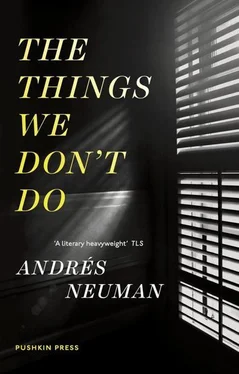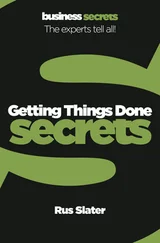The firemen had given instructions that nobody was to get too close to the building until the smoke had cleared and the debris been removed. The crowd of onlookers that had continued to grow during the operation now began slowly to disperse. Piotr Czerny’s eyes were glued to a certain spot on the third floor. His feet and back were aching, and he could feel a stabbing pain in his stomach as he thought of the sheets of laid paper on his desk. He thought of the care with which he had kept them from his colleagues, his efforts to hide them until he had finished the definitive version. He thought of the last year of hard work and his proverbial poor memory. Trying to summon up the first poem in his unpublished book, he was surprised to find himself unwittingly repeating the second half of Rilke’s “The Captive”: … And you still alive … He looked away, and retraced his steps.
He walked along, his mind a blank. He headed towards Jabetzka Square; went into Central Café II. He searched for an empty table and, as he passed in front of the oval mirror, saw himself in the midst of the stains, hair dishevelled as he fought his way through a sea of occupied tables. While he was getting settled, he thought of ordering a salad and waited for the waiter to come over. He could not think clearly; his ideas slipped away from him. For a moment he even thought he was going to lose consciousness. He tried taking deep breaths. Since they were taking their time attending him, he took out his notebook and his Mont Blanc pen and studied them for some time.
Suddenly, hoping that the waiters had forgotten him, he began to write.
An hour later, having finished both his salad and the outline of a long poem about the ritual of fire and how words are saved, Piotr Czerny felt the electric shock of a conviction. He opened his notebook again at the first page, and wrote in tiny letters: The Absolution. Deep in his guts, he felt a sudden relief.
THEY KNOW, Vílchez announced. Tenenbaum turned towards him. He found him gazing out of the office window. Or perhaps studying the pane of glass itself, the trails from past rains, the microscopic scratches which, looked at from close up, were like those of a crashed car. This simile pleased Tenenbaum, who felt a moderate rush of poetic vanity. Rinaldi meanwhile was ignoring both of them, absorbed in the sophisticated mobile phone that invariably demanded his attention whenever he had to share a space with other authors. They know, they know, sighed Vílchez.
Tenenbaum rose to his feet. He stretched out an arm in search of Vílchez’s shoulder, although the other man did not seem to acknowledge this affectionate gesture, or possibly saw it as anything but affectionate. Both options were justified. Tenenbaum did not appreciate Vílchez, just as in truth he did not appreciate any writer of his generation other than himself. And yet he had begun to respect, or at least envy him, which in somebody as secretly insecure as himself amounted to almost the same thing.
With the round table on the importance of reading in our day about to commence, Tenenbaum thought that the proverbial arrogance of Vílchez, who had never expressed so much as a doubt or any praise in his presence, probably had the same root as his own failings. This revelatory hypothesis filled him with a relief that was close to tears. When Vílchez repeated, as if coming round, as if surviving the accident of the window that he had contemplated: They already know, I’m sure they already know, Rinaldi finally raised his eyes from his mobile. What do you mean? he asked. Vílchez’s only response was an ironic smile.
Rinaldi and Vílchez had never got on well, or rather they had always pretended not to get on badly. Tenenbaum compared their expressions, glancing first at one and then the other, trying to unite them on a diagonal. In his view, the rivalry between Rinaldi and Vílchez was based on a grave misunderstanding: that they were both striving for the same thing. Nothing was further from the truth. Vílchez aspired to a prestige that excluded all others, a sort of moral leadership in the long term. Rinaldi on the other hand desired with a fury (but also with humour, something often lacking in his colleagues) to be recognized as quickly as possible. One of them, it could be said, was anxious to win the lottery. The other hoped all his colleagues would lose it, in order to be remembered as the only one who had not stooped to place a bet.
Rinaldi still had no idea what Vílchez was talking about. Tenenbaum would have preferred not to know, but had just found out. Gradually withdrawing the arm that was still draped round Vílchez’s docile shoulder, he looked him in the eye. He looked at him with an attention he had never previously bestowed on a colleague, taking in the irregular lines on his brow, the baroque colouring of his cheeks, his sideburns and the hairs in his nostrils, which were vibrating as if they were hiding an internal ventilator. Tenenbaum was so inordinately pleased with this witty simile that he almost forgot what he was about to say. After a few moments of poetic distraction, he recovered the thread and Vílchez’s gaze and asked him, straight out: And you, how long is it since you last read?
All Vílchez could do was snort, shake his head, shrug his shoulders. It seemed to Tenenbaum that, at the far end of the room, Rinaldi was smiling like a thief confirming that the police also steal. This comparison did not give him the slightest satisfaction.
There was the sound of three short knocks on the door of the office where the writers were waiting. The hyperbolical head of the poet and translator Piotr Czerny appeared. As the organizer of this series on the promotion of reading, he was to be the round-table moderator. Ready, gentlemen? he asked in a voice that to Rinaldi, who tended to mistrust other people’s courtesy, appeared to be tinged with mockery.
Eyes popping, his body stiff, Vílchez whispered in Tenenbaum’s ear: We have to go and admit it once and for all, out there, in front of everybody.
Gentlemen, the moderator crooned, whenever you like. The audience is keen to hear you, there’s a good crowd.
Better if I start, eh, Vílchez? said Rinaldi, switching off his mobile.
THE GOLD OF THE BLIND MEN
I am going to cause a tiger.
JORGE LUIS BORGES
IT WAS ONE of those evenings that only some kitsch writers describe as concave. The seven o’clock sun seemed to want to linger over things, and plunged into the Foundation’s courtyard. We were ready. Everything had been planned with great care. It was the first, and probably the last, opportunity we would have. It had taken us months to get him to agree, to convince his mother, receive the last-minute confirmation, settle all the details. It was, if you wish, a concave evening in the year 1971. We were warmed by the small sun and the closeness of surprise. We were waiting for Borges.
The Foundation’s headquarters were on Calle Defensa, just before Avenida San Juan. Back then, the San Telmo neighbourhood was not what it is today: tourists came more warily, in fewer numbers. We had been granted a licence to convert an old mansion with damp rooms and whitewashed walls that had once belonged to a family of wealthy criollos , and subsequently to an English couple who had murky dealings down in the port. Borges was happy, or so he said: he had just published El Hacedor, and the Peronists were still banned. He had promised to arrive at seven o’clock sharp, although the talk was not scheduled to start until half an hour later. The audience found it hard to stay in their seats. They were all aware of what we were going to do. Those of us who had organized the event hid our anxiety by straightening the chairs and making risqué jokes. I know it sounds odd: we were telling dirty jokes while we waited for Borges. Irma Moguilevsky was wearing a low-cut blouse and a daring skirt. To please the maestro, she had said when she came in. Borges is blind, Irmita, I had to tell her. What’s the point then? she had asked, with a mixture of disappointment and confusion. Don’t worry, Irmita, just do as we said, I sighed.
Читать дальше












